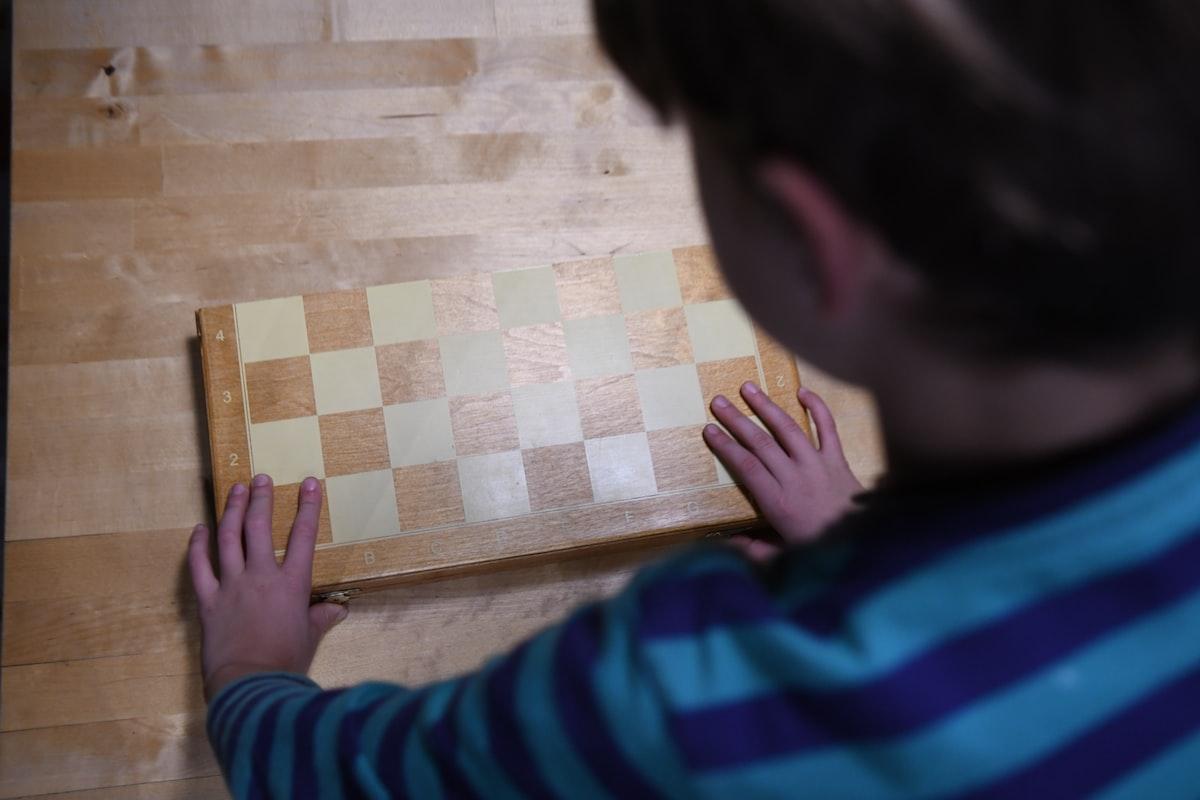Chess is one of the oldest and most popular games in the world. It originated in ancient India and spread throughout the world as a game of strategy and intellectual prowess. The game is played by millions of people, from beginners to grandmasters, and it is renowned for its complexity and depth. To play and master chess, one must understand the rules and objectives of the game. In this article, we will explore the fundamental principles of chess, the benefits of playing, and its significance in education. Read on to learn more about how this beloved game can sharpen your mind and provide hours of entertainment.
Master the Complexity: Rules of Chess

The rules of chess are relatively simple, yet the game itself is complex and requires strategic thinking. The chessboard consists of 64 squares, arranged in an 8×8 grid. Each player has 16 pieces, including one king, one queen, two rooks, two knights, two bishops, and eight pawns. The players take turns moving one piece at a time according to specific rules. The objective is to checkmate the opponent’s king, which means putting it in a position where it is under attack and cannot escape capture. However, there are many different strategies and tactics that players can use to achieve this goal, making every game unique and challenging. Understanding the rules of chess is crucial to being able to play effectively and enjoy the game to its fullest.
The Objective of Chess: Strategic Planning & Checkmate

At its core, the objective of chess is to exercise one’s brainpower and outmaneuver the opponent. The game is a test of logical thinking, spatial reasoning, and strategic planning. A successful chess player must be able to anticipate the opponent’s moves, think several steps ahead, and be proactive in developing their pieces. Playing chess helps improve concentration, as players must stay focused for long periods to be successful. It also enhances problem-solving skills, as each move requires analyzing the board and thinking through various scenarios. Chess is a game that challenges and stimulates the mind, providing countless hours of entertainment and mental exercise.
Benefits of Playing Chess: Concentration & Strategy
One of the main benefits of playing chess is its ability to enhance cognitive abilities. Studies have shown that regular chess players have improved memory, critical thinking, and decision-making skills. Because chess requires players to think ahead and consider different moves, it helps develop strategic thinking and planning. It also improves spatial reasoning, especially in children, as they learn to visualize the game and anticipate moves. Chess requires players to focus on the task at hand, improving their concentration and attention span. In fact, playing chess has been shown to be especially helpful to students looking to improve their academic performance. By improving critical thinking and analytical skills, chess can help students excel in subjects such as mathematics and science. Overall, the benefits of playing chess are numerous, and it is an activity that can enrich and improve mental health and development for players of all ages.
The Significance of Chess in Education
Chess has been used as a tool for learning for many years. Its rich history includes use as a means of teaching strategic thinking and planning as far back as the 6th century. Today, chess is being introduced into school curriculums around the world. Chess teaches children to think critically and strategically, and it offers benefits in a number of academic subjects. Mathematics, for example, is foundational to chess, as players must constantly calculate moves and evaluate the board. Chess also helps in the development of logic, problem-solving, and memory retention, all of which are essential to academic success. In addition to benefits in the classroom, playing chess can foster important life skills such as sportsmanship and respect for others. By including chess in the curriculum, schools are able to help students develop intellectually while also providing an enjoyable and enriching experience.
The Benefits of Chess in Education
Incorporating chess into education has been greatly beneficial for students. It has been found to improve cognitive development, critical thinking, and academic performance. This is why chess is taught at many schools around the world as a part of their curriculum. The game helps students to think deeply, plan strategically, and anticipate future events. It is especially helpful for students who struggle with analytical thinking because it trains the mind to think critically and creatively. When students play chess, they learn to think carefully about every move they make and consider the potential consequences. This type of thinking can benefit them in many areas of their education, and even in their future careers. Moreover, playing chess promotes social skills and emotional intelligence, teaching students how to deal with competition, sharing, and sportsmanship.
In recent years, several studies have demonstrated the benefits of chess in education. One study conducted in New York City found that students who participated in chess programs improved their test scores in both mathematics and reading. Another study conducted in Spain found that including chess in the classroom helped students with ADHD to improve their attention span and control of impulsive behavior. It is clear that chess provides significant benefits to students of all ages and abilities.
In conclusion, chess is a valuable tool for learning that helps students develop an array of cognitive and social skills. By teaching students to think critically and plan strategically, chess promotes academic success and intellectual development. This ancient game has stood the test of time and remains a popular pastime for people of all ages. With the many benefits that come with playing chess, it is no wonder that educators around the world are incorporating it into their curricula.
Chess FAQs: Learn More Here!
What is the ultimate goal of chess?
The ultimate goal of chess is to checkmate your opponent’s king, which means trapping the king in a position where it cannot escape capture.
How many pieces are there in a game of chess?
There are 16 pieces for each player, including one king, one queen, two rooks, two knights, two bishops, and eight pawns.
What are the benefits of playing chess?
Playing chess has numerous benefits, including enhancing concentration and focus, developing strategic thinking and problem-solving skills, boosting memory and critical thinking abilities, and increasing academic performance.
Can chess be taught in schools?
Yes, chess can be taught in schools as it can enhance cognitive development and academic performance in students. Many schools around the world are including chess in their curriculum.
Do you need to be a genius to play chess?
No, you do not need to be a genius to play chess. Anyone can learn how to play, and with practice, anyone can become a good player.
How can chess contribute to the development of cognitive skills?
Chess involves analyzing, planning, evaluating and decision making, all key skills for cognitive development. It promotes critical thinking and problem-solving abilities, which are essential for success in academic and professional settings.
Can playing chess help you in other areas of life?
Yes, the skills developed through playing chess can be transferred to other areas of life, such as improving the ability to make decisions, anticipating the consequences of one’s actions, and considering different approaches to a problem.
Is chess only for kids or can adults benefit from it as well?
Chess is for everyone, regardless of age. Many people start playing chess later in life and benefit from its cognitive and social advantages just as much as children do.